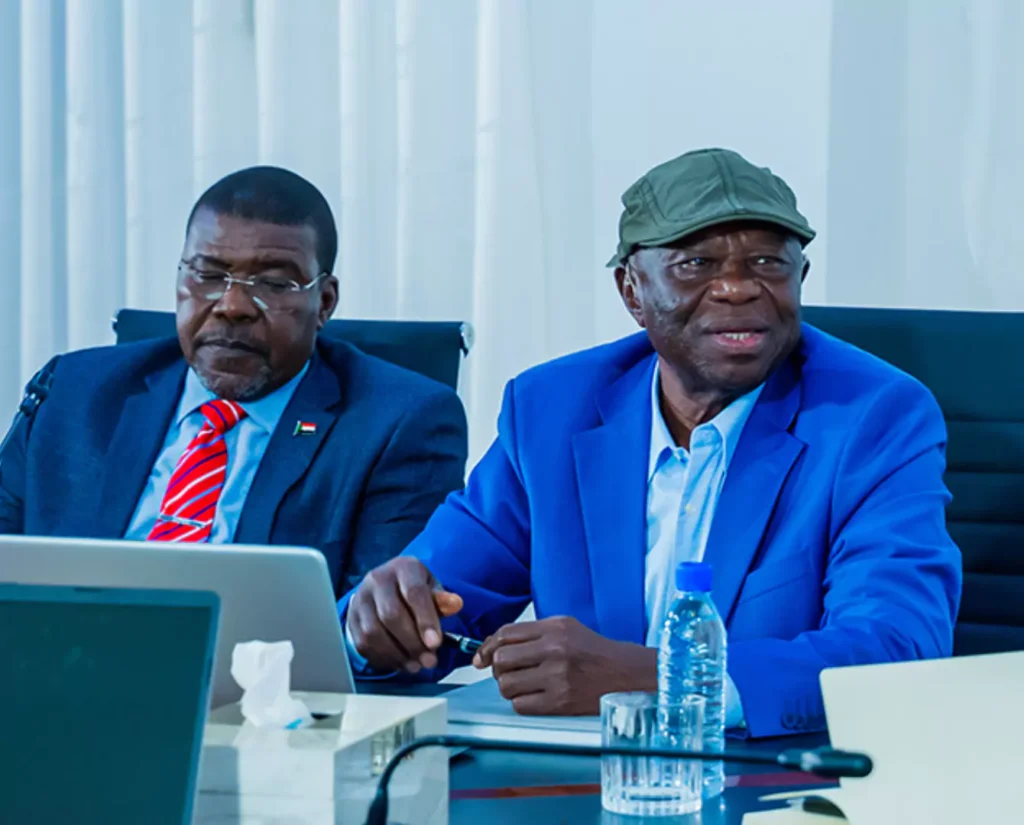Legislative Branch
The Legislative Branch is the law-making and oversight authority of Sudan during the transitional period. It provides a platform for the country’s diverse regions, political forces, and civil actors to shape national policies, ensure accountability, and advance federal democracy. By balancing representation between regions and political constituencies, the Legislative Branch works to strengthen inclusion, transparency, and unity.

Council of Regions
The Council of Regions is a representative body of 24 members, with 3 delegates from each of Sudan’s 8 regions:
- Khartoum
- Darfur
- Kordofan
- Eastern Sudan
- Northern Sudan
- Central Sudan
- Blue Nile
- Red Sea
This body ensures that Sudan’s regions play an equal role in national decision-making. By elevating local voices, it strengthens federal governance, promotes equitable development, and ensures that regional priorities are reflected in national policy. The Council also serves as a safeguard against centralization, guaranteeing that the federal system under construction reflects the diversity of Sudan’s people.
Council of Deputies
The Council of Deputies is a broad legislative body composed of 177 representatives from political parties, civil society organizations, and armed movements. It is the forum where Sudan’s political and social spectrum is represented, ensuring inclusivity during the transitional period.
The Council has three primary functions:
- Drafting and passing legislation necessary for the transitional process.
- Providing oversight of the Executive Branch and ensuring accountability in governance.
- Representing diverse political and social groups, allowing all Sudanese voices to be heard in shaping the future of the state.
By bridging political forces and civil actors, the Council of Deputies ensures that Sudan’s governance remains inclusive, democratic, and accountable.

